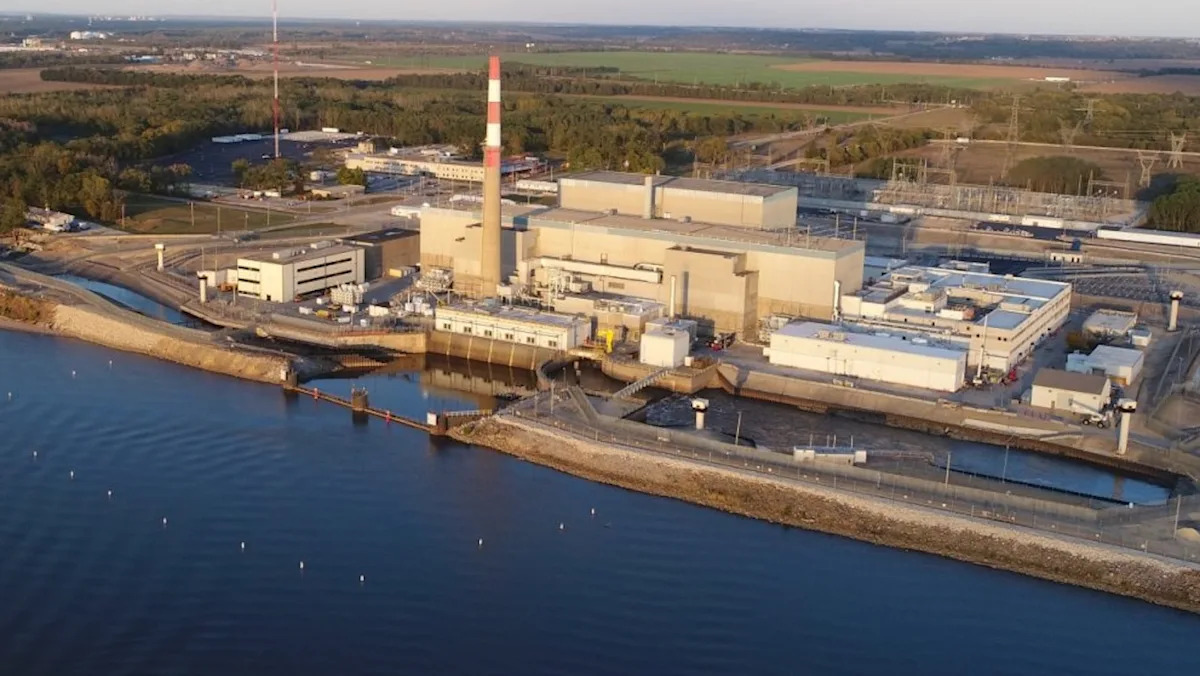When it comes to nuclear safety, small procedural lapses can result in an unsafe work environment.
The Nuclear Regulatory Commission has issued a confirmatory order to Constellation Energy Generation following a 2023 issue at the Quad Cities Nuclear Power Station in Cordova, Illinois, according to the American Nuclear Society.
What’s happening?
During a refueling outage, reactor coolant drained and sprayed two workers after valves connected to the reactor were left in incorrect positions. The NRC said radiation levels stayed within regulatory limits but noted that it still affected the agency’s ability to carry out proper oversight.
“The drain-down event was evaluated as having very low safety significance because multiple sources of water were available and used to maintain safe water level in the reactor,” the NRC’s office of public affairs said in a statement.
As reported by ANS, the March 28 event led to six apparent violations of NRC requirements, including willful failure to follow procedures, willful failure to survey and decontaminate exposed workers, and willful failure to maintain accurate records of the episode.
The occurrence echoes other safety concerns within the nuclear industry. A whistleblower raised the alarm about unsafe practices at another U.S. nuclear facility, alleging poor handling of irradiated wastewater that could have exposed workers to dangerous radiation levels. Though separate, these cases show why strong safety culture and consistent regulatory oversight is necessary to prevent large risks.
Why is trust in nuclear energy important?
While the NRC emphasized that the Quad Cities event didn’t endanger the public, it reveals how human error and incomplete documentation can compromise trust in nuclear energy. Nuclear power remains one of the lowest-carbon energy sources available and produces virtually no direct dirty energy output.
As the U.N. Economic Commission for Europe explains, methane, a byproduct of dirty energy sources, is at least 28 times more powerful at trapping heat than carbon dioxide — meaning reliable cleaner power sources such as nuclear are critical to cutting dependence on gas, coal, and oil.
“If you’re going to define ‘safe’ as having zero risk, then literally nothing is safe,” said Robert Hayes, a nuclear engineer in North Carolina who debunks misconceptions about nuclear energy. “Everything has some kind of risk.”
What’s being done about nuclear safety?
Two individuals involved were “dismissed” by the plant, and the company has since agreed to implement a third-party Nuclear Safety Culture Assessment. It also agreed to implement training and “fleet-wide” surveys to evaluate safety culture. Plus, the NRC’s confirmatory order requires Constellation to track and report progress as it completes these corrective measures, per ANS.
For people looking to understand the complexities of energy systems and safety, exploring critical climate issues offers a starting point. Advocating for change at work when it comes to safety or climate-friendly practices can help encourage productive discussions and shape the culture to benefit human safety and the health of the planet.

��
Get TCD’s free newsletters for easy tips to save more, waste less, and make smarter choices — and earn up to $5,000 toward clean upgrades in TCD’s exclusive Rewards Club.
